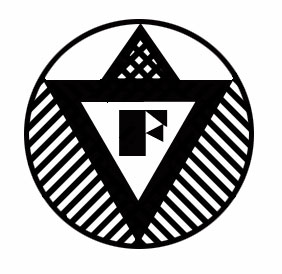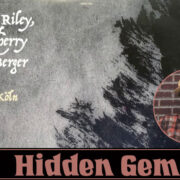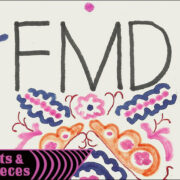Lorena Quintanilla on Música Nueva Latinoamericana 2 

I’ve been a longtime fan of Mexican shoegaze duo Lorelle Meets the Obsolte, and when I’d heard that the band’s Lorena Quintanilla had a solo album forthcoming (her second, sadly I’d slept on the first) I was incredibly intrigued what would arise. J. Zunz sophomore LP is a haunted, complex record that pulls as much from industrial spaces as it does experimental and concrete nodes. The LP focuses keenly on Quintanilla’s voice — echoing through spaces that seem cavernous and dangerous in the same light. I asked Lorena to contribute a pick to the Hidden Gems series, quite anxious to hear what treasure she might unearth and I’m not in the least disappointed. She’s given light to a series of Latin American electronic music that’s been sorely lost from the cultural conversation. Her pick centers on the inclusion of Jacqueline Nova, with whom I was unfamiliar, but quickly became quite intrigued by. Read on to see how the record has come into Lorena’s life and the impact it’s had on her songwriting.
“There are four compilations called Música Nueva Latinoamericana which were released by Tacuabé in 1976 (these compilations have been reissued by the great bootleg label “Creel Pone”) and I highly recommend all of them,” offers Quintanilla. “The physical copies are hard to find, but recently I found out that Keith Fullerton Whitman from Creel Pone, uploaded all of them to YouTube. The second volume of this compilations contains three compositions. One of them is “Dynamus” by Eduardo Bértola which is like a science fiction beautiful journey, then comes “Humanofobia I” by Joaquín Orellana which is a political electroacoustic piece, denouncing through experimentation the violence in Guatemala, his country. Then you have the amazing piece “Creación de la Tierra” by Jacqueline Nova. I will focus on this piece as it was the first one that I listened to and the one that connected me to all this incredible music from Latin America,” she muses.

“I ran into “Creación de la Tierra” around 2013 or 2014. One night I wasn’t able to sleep so I looked for something abstract and electronic to listen, thinking that it might help me to relax. One thing led to another and suddenly I was amped up looking for pioneer electronic musicians in Latin America. Tons of men appeared. So I narrowed my search for women and the name of Jacqueline Nova came up. I listened to her “Creación de la Tierra” piece and it changed my life forever. It didn’t put me to sleep at all. I spent the whole night reading about her. Nova was a pioneer and transgressive experimental electronic musician from Colombia during the sixties and seventies. She had a scholarship at CLAEM, an institute in Buenos Aires focused on studies and the research of the music field especially in contemporary and avant – garde music. The institute connected contemporary musicians from Latin America to the avant-garde scene in Europe.”
“In “Creación de la Tierra” she transformed indigenous chants with synths and tape loops. To me,” Lorena ponders, “it is like an exploration between music, noise and words, erasing timelines, questioning history and connecting past with present. Listening to this piece with my headphones in the middle of the night was a whole experience. It really felt like I was floating in space. Her piece gave me tons of ideas. I really connected with it. But I think it was until I was recording ‘Hibiscus’ that I really thought about it. I wanted to feel that kind of space inside the songs. The last song I added to the album is called “Ouve – Me” and it was inspired by her piece. I used some random electronic sounds, I tried to foster the emptiness and recorded some dialogues in the background.
“I think that any piece coming from a pioneer Latin-American electronic musician is automatically a hidden gem, just because systematically these are ignored and buried by the dominant culture,” admits Quintanilla.
The whole collection is a worthwhile rabbit hole to fall down, but #2 is an excellent starting point. As Lorena points out, physical copies are a bit hard to come by. Originals are gonna fetch ya a couple of hundred and since Creel Pone was a bit of an unofficial endeavor, that means Dicogs eschews sales and even eBay and other lists seem a bit dicey at this point. There are the digital streams for the curious, so at least the music isn’t lost to time. For those interested in Latin American electronic music, this is an indispensable collection. Well worth pairing with J.Zunz latest from Rocket Recordings, which is just out last week.









